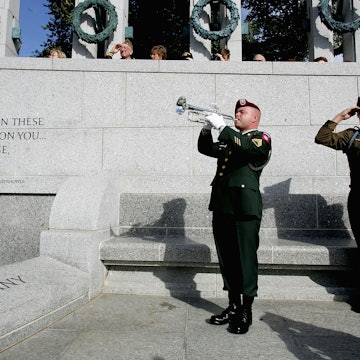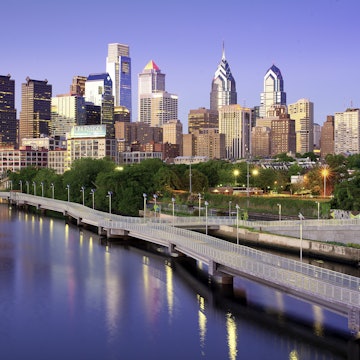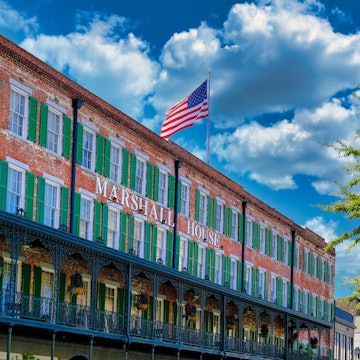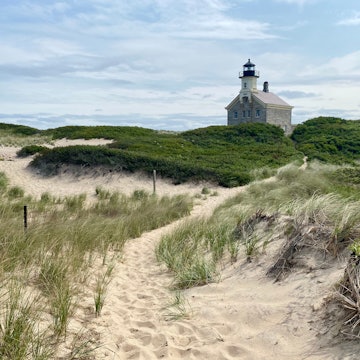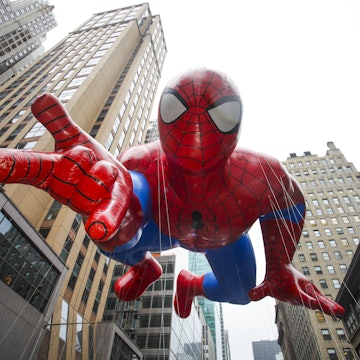
Explore Philadelphia's Black history at these 8 sites
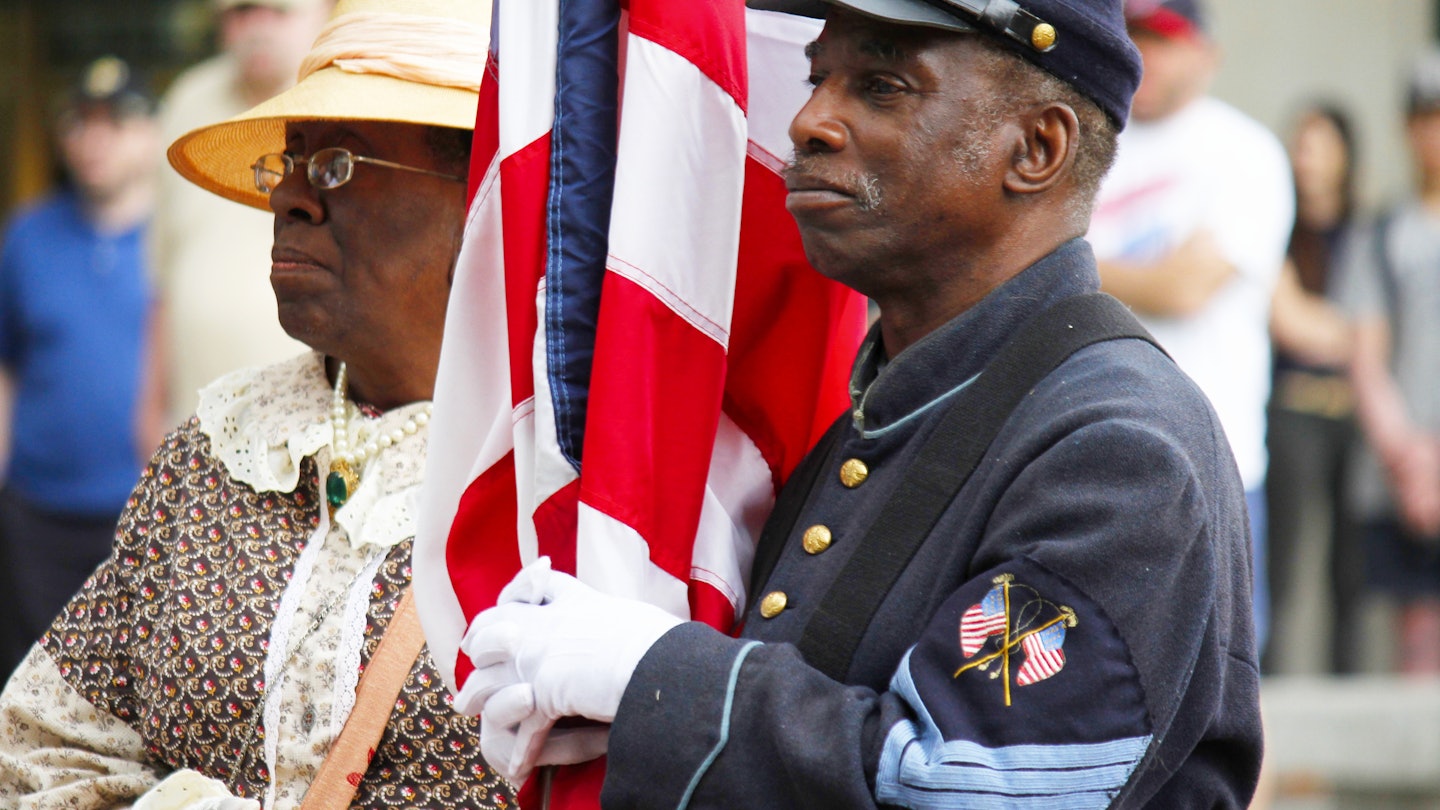
Historical re-enactors commemorate Flag Day at the National Constitution Center in Philadelphia. © Jana Shea / Getty Images
The story told about the city of Philadelphia often starts with the founding fathers. There is, however, a narrative of equal importance to remembering and preserving American history here: the legacy of African Americans and their contributions to the city’s cultural fabric. Philadelphia was a center of free black life in the US and as such as has a wealth of Black history available for visitors to explore.
From the exhibits at The National Constitution Center to the founding of the African Methodist Episcopal or AME church, there’s more African American history to be revealed, digested and remembered in this city than meets the eye.

National Constitution Center
The National Constitution Center serves as a museum of the people, a civic education headquarters and America’s town hall. But it’s worth making the effort to center your visit on the excellent exhibits on Black Americans and their contributions to our country. Highlights include a signed copy of the “A More Perfect Union” speech delivered by the first Black president, Barack Obama; glimpses into the landmark Supreme Court cases Brown v. Board of Education and Dred Scott v. Sandford; and a rare copy of the Emancipation Proclamation.
During Black History Month in February, the museum usually brings in new exhibitions to highlight the month.
The African American Museum in Philadelphia
Located just a few blocks away from the Liberty Bell, Philadelphia’s African American Museum was founded in 1976 as part of the city’s bicentennial celebration. It was the first museum dedicated to African American culture and history in the country to be built by the city itself. Inside guests will find four gallery spaces, three of which are permanently dedicated to specific aspects of the African American experience: the African Diaspora, the story of African Americans in Philadelphia and the Contemporary Narrative. There’s also an auditorium space, which along with the fourth gallery, showcases a variety of artistic and educational offerings.

Johnson House Historic Site
Located in the Germantown neighborhood of Philadelphia, the Johnson House Historic Site has long stood as a symbol of the legacy of slavery and the Underground Railroad. In 1768, Dutch immigrant John Johnson built the house for his son as a wedding present.
As devout Quakers, the Johnsons were committed to contributing to the community, and that is believed to be the reason the house became a pivotal station along the Underground Railroad in the 1800s.
Today, the Johnson House remains an essential cornerstone of both historic preservation and educational programs in Philadelphia. Guided tours are offered to walk-ins on Thursday-Saturday and by appointment on other weekdays.
The tour shares tidbits about the Johnson Family, the abolitionist movement in Philadelphia and the men, women and children who sought harbor in the Johnson home on their way to freedom. The home is also the site of lectures and events centered on African American history, like an annual Juneteenth celebration.
Mother Bethel African Methodist Episcopal (AME) Church
“Mother Bethel,” as this church is known, is often considered to be the birthplace of the AME church. The denomination, which was the first independent Protestant one founded by African Americans, came about in 1793 in response to discrimination against free Black people in the main Methodist churches of the day. Mother Bethel church itself was founded a year later and was a central part of the freed Black community in Philadelphia during this time. Now housed in a beautiful red brick building, the third of which to stand on this spot, Mother Bethel remains an important part of the Black community in Philadelphia to this day. Visitors who book museum tours (which must be booked in advance) will find not only a thriving church, but an archive and museum with artifacts dating back as far as the 1600s.

Marian Anderson Historical Residence and Museum
Renowned Black opera singer Marian Anderson, who famously sang at the Lincoln Memorial on April 19, 1939 per an invite from Daughters of the American Revolution, called Philadelphia her home.
Today, Anderson’s three-level brick Italianate-style home, built in 1924, is a museum managed by the Marian Anderson Historical Society, founded by Blanche Burton-Lyles. During the tours, visitors can peek into rooms, complete with original photos, clothing and other memorabilia. The exhibits featured throughout the house change seasonally.
The singer converted the space, including the lower level basement, into a place to host African American singers, musicians and the literati. Her home became a natural gathering place where fellow African Americans could feel safe amid Jim Crow racism.
Burgeoning singers and music students continue to further Marian Anderson’s legacy via the Marian Anderson Scholar Program, which allows students between the ages of 18 to 45 inspired by the great singer to practice, gather in fellowship and perform in showcases multiple times per year.
Historical Society of Philadelphia
Want to take a glimpse into the past? Been desiring to make headway on a genealogy project and getting to know your ancestors from yesteryear? Head to the Historical Society of Pennsylvania, where the catchphrase is “Make History Yours.”
More than 21 million items constitute the Historical Society’s collection, which mainly focuses on greater Philadelphia, eastern Pennsylvania and Delaware. Items available for perusal and research purposes include sheet music, photographs, restaurant menus, newspapers and a wealth of other materials chronicling social and economic conditions of the past.
It is, however, the Pennsylvania Abolition Society’s digital exhibit, also housed at the Historical Society, that brings a vivid part of Philadelphia’s past and African American history to life. Here, visitors and researchers can learn about the society formed in 1775, a crucial proponent of ensuring Black youth, whether native Philadelphians or escaped slaves from the South, had access to education, jobs and essential tools navigating life as freed people.
Meeting minutes, documentation showing these efforts and their financials provide a glimpse into an organization navigating a difficult world. The Historical Society is open to the public Tuesday through Friday. Take a gander at the online collections on their website prior to your visit to maximize your time.
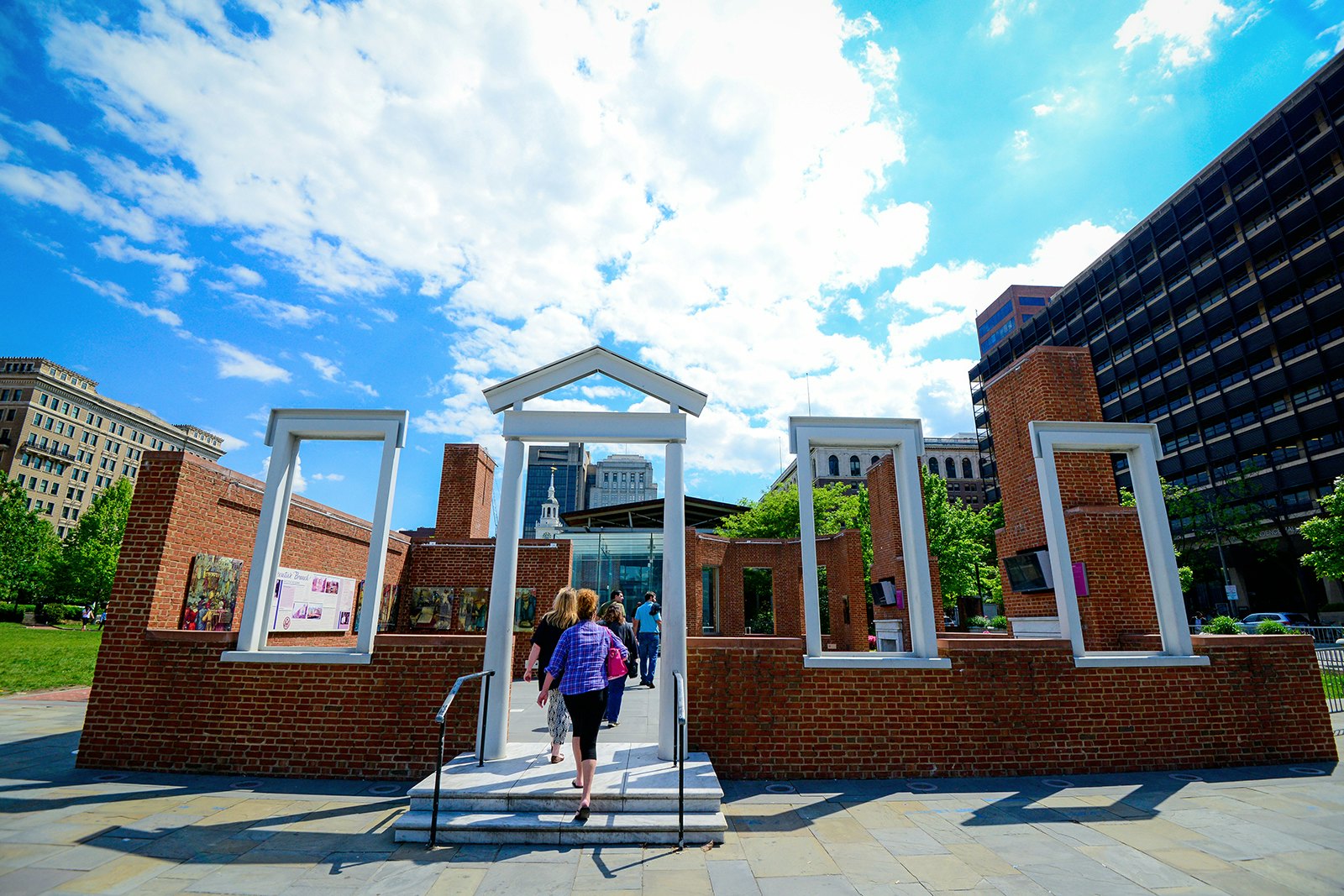
The President’s House
Steps away from the famed Liberty Bell, the President’s House tells the stories of the nine enslaved Africans who lived in the home of two founding fathers. While Philadelphia served as the nation’s capital, Presidents John Adams and George Washington resided in this presidential mansion. Today, this mansion is deconstructed, with the original four walls standing sans roof – a hanging tribute to the dichotomy between slavery and freedom.
Artifacts from the home were recovered and are on display alongside the exhibits detailing the lives of the enslaved Africans. The open-air site is available to the public 24 hours a day and serves as a moving and painful reminder of the past lives of Black Americans within the context of this country.
The Colored Girls Museum
One of the most unique museums in Philadelphia, the Colored Girls Museum is housed in a historic home in the Germantown neighborhood and pays homage to the struggles and experiences of African American women and girls. Part sacred space, part art exhibition, this museum uses artifacts, art work and even the space itself as a kind of tangible love letter to ordinary Black women and their contributions.
Safety recommendations and restrictions during a pandemic can change rapidly. Lonely Planet recommends that travelers always check with local authorities for up-to-date guidance before traveling during Covid-19.
You might also like:
Celebrate Harriet Tubman's 200th birthday at these 5 sites
15 places in the US to mark Black History Month
Philly's soul train rolls on: the best live music venues in Philadelphia








